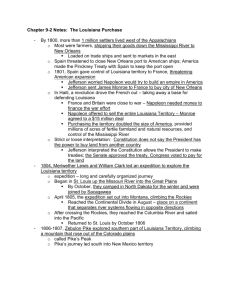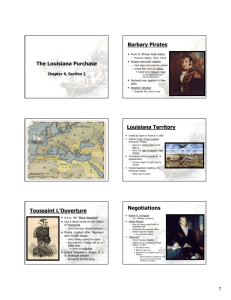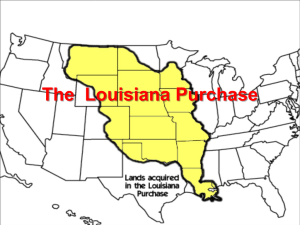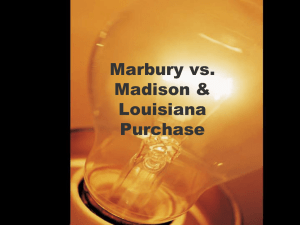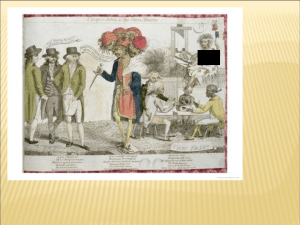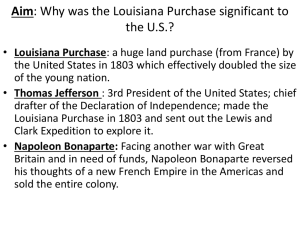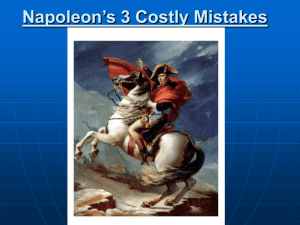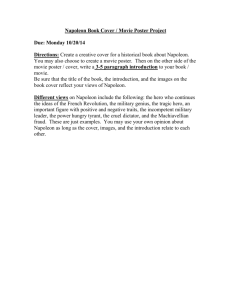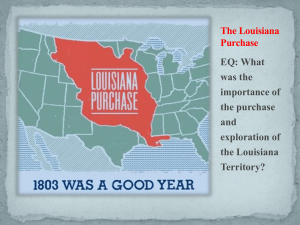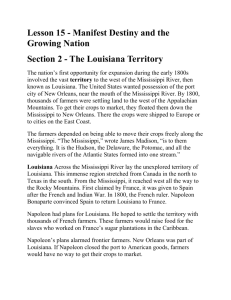As the 19th century began, all was not peaceful in the new United
advertisement
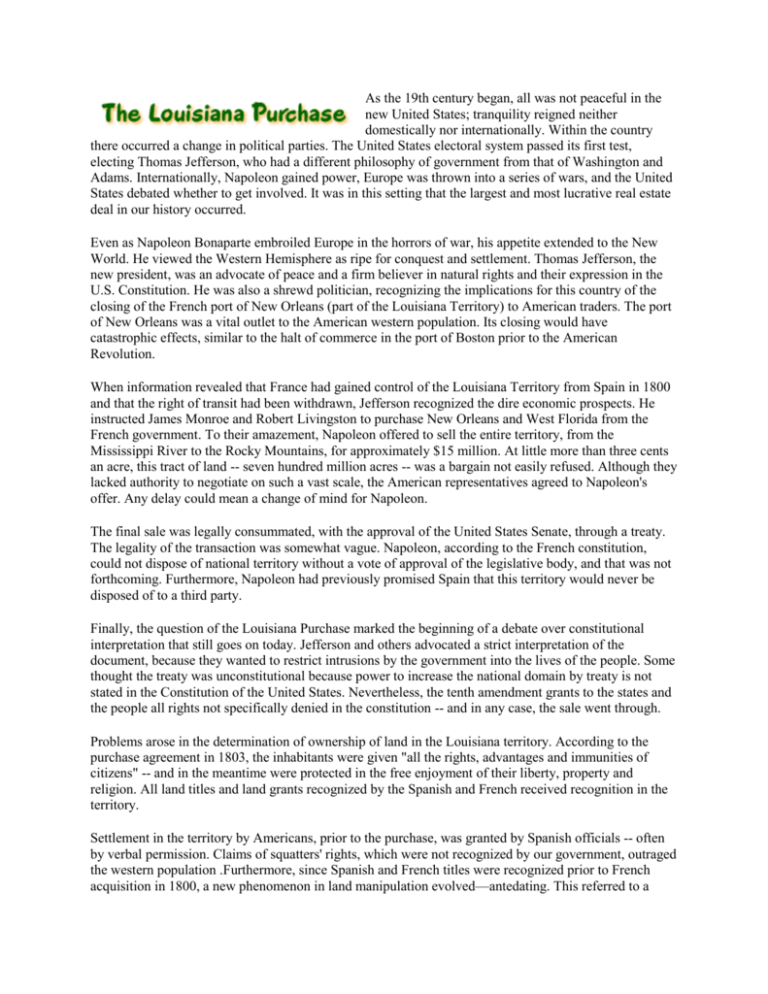
As the 19th century began, all was not peaceful in the new United States; tranquility reigned neither domestically nor internationally. Within the country there occurred a change in political parties. The United States electoral system passed its first test, electing Thomas Jefferson, who had a different philosophy of government from that of Washington and Adams. Internationally, Napoleon gained power, Europe was thrown into a series of wars, and the United States debated whether to get involved. It was in this setting that the largest and most lucrative real estate deal in our history occurred. Even as Napoleon Bonaparte embroiled Europe in the horrors of war, his appetite extended to the New World. He viewed the Western Hemisphere as ripe for conquest and settlement. Thomas Jefferson, the new president, was an advocate of peace and a firm believer in natural rights and their expression in the U.S. Constitution. He was also a shrewd politician, recognizing the implications for this country of the closing of the French port of New Orleans (part of the Louisiana Territory) to American traders. The port of New Orleans was a vital outlet to the American western population. Its closing would have catastrophic effects, similar to the halt of commerce in the port of Boston prior to the American Revolution. When information revealed that France had gained control of the Louisiana Territory from Spain in 1800 and that the right of transit had been withdrawn, Jefferson recognized the dire economic prospects. He instructed James Monroe and Robert Livingston to purchase New Orleans and West Florida from the French government. To their amazement, Napoleon offered to sell the entire territory, from the Mississippi River to the Rocky Mountains, for approximately $15 million. At little more than three cents an acre, this tract of land -- seven hundred million acres -- was a bargain not easily refused. Although they lacked authority to negotiate on such a vast scale, the American representatives agreed to Napoleon's offer. Any delay could mean a change of mind for Napoleon. The final sale was legally consummated, with the approval of the United States Senate, through a treaty. The legality of the transaction was somewhat vague. Napoleon, according to the French constitution, could not dispose of national territory without a vote of approval of the legislative body, and that was not forthcoming. Furthermore, Napoleon had previously promised Spain that this territory would never be disposed of to a third party. Finally, the question of the Louisiana Purchase marked the beginning of a debate over constitutional interpretation that still goes on today. Jefferson and others advocated a strict interpretation of the document, because they wanted to restrict intrusions by the government into the lives of the people. Some thought the treaty was unconstitutional because power to increase the national domain by treaty is not stated in the Constitution of the United States. Nevertheless, the tenth amendment grants to the states and the people all rights not specifically denied in the constitution -- and in any case, the sale went through. Problems arose in the determination of ownership of land in the Louisiana territory. According to the purchase agreement in 1803, the inhabitants were given "all the rights, advantages and immunities of citizens" -- and in the meantime were protected in the free enjoyment of their liberty, property and religion. All land titles and land grants recognized by the Spanish and French received recognition in the territory. Settlement in the territory by Americans, prior to the purchase, was granted by Spanish officials -- often by verbal permission. Claims of squatters' rights, which were not recognized by our government, outraged the western population .Furthermore, since Spanish and French titles were recognized prior to French acquisition in 1800, a new phenomenon in land manipulation evolved—antedating. This referred to a practice of predating claims before 1800, when the area was under Spanish control, so that the claims would be recognized by the United States government. So prevalent was this practice that a commission was mandated to investigate the validity of these Louisiana land titles. Congress and the courts were inundated with claims concerning land titles for decades following. Adding to the confusion was the practice of subdividing and selling these smaller tracts to others. The discovery of fraud led to the invalidation of many Louisiana land titles. Background Questions: 1. How did France's purchase of the Louisiana Territory affect the United States? 2. Briefly describe the extent of this territory. 3. Describe Jefferson's response to Napoleon's takeover, and Napoleon's response to the United States. 4. Did Napoleon have the authority to sell the Louisiana Territory? Explain. 5. Explain antedating and cite some examples. 6. Did Jefferson violate his principle of strict constitutional interpretation? Explain.
